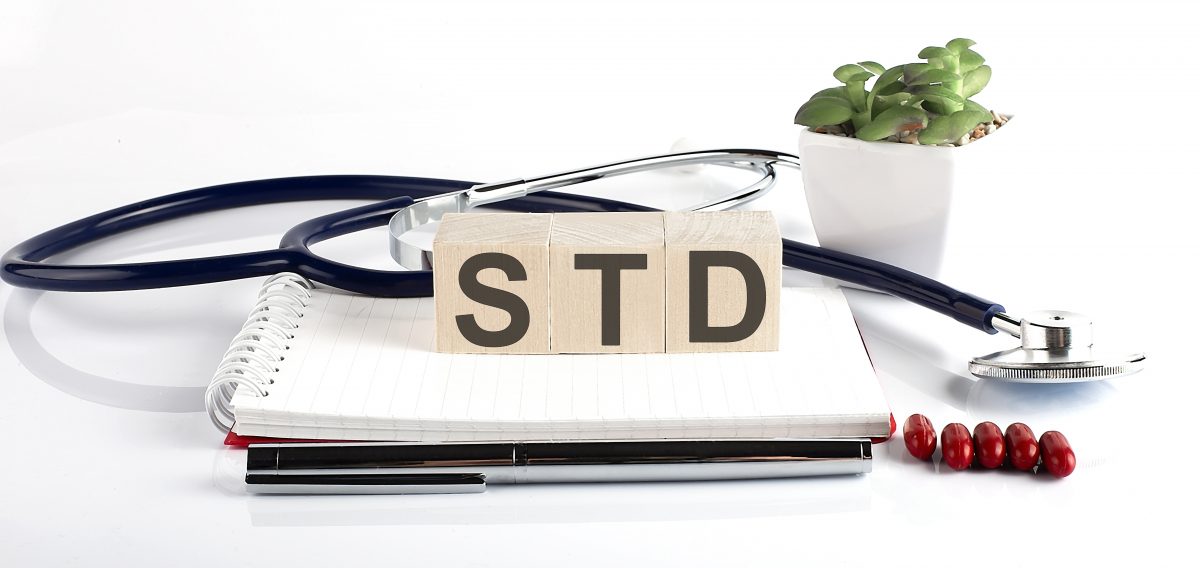Augmentin for STD
Overview of Augmentin for STD
Augmentin is an antibiotic used to treat various bacterial infections, including sexually transmitted diseases (STDs). By inhibiting the growth of harmful bacteria, it helps the body fight off and get rid of infections. Due to its high efficacy rate and minimal side effects, it is often prescribed as a first-line treatment option for many STDs. It works by stopping bacteria from multiplying and dividing, thereby killing them in the process. When taken according to instructions, Augmentin has been known to successfully treat various STDs such as chlamydia, gonorrhea, syphilis, and more.
What is it?
Augmentin is an antibiotic drug used to treat bacterial infections. It is a combination of two different medicines—amoxicillin and clavulanate potassium—which work together to fight bacteria and prevent them from forming new colonies. Augmentin kills the bacteria that cause infection, thus helping your body clear the infection quickly. Unlike other antibiotics like penicillin, Augmentin works against Gram-positive and Gram-negative bacteria, making it more effective in treating infections caused by a wide range of bacteria.dd
How does Augmentin work?
Augmentin works by inhibiting bacterial growth and reproduction. The two active ingredients in Augmentin, amoxicillin and clavulanate potassium, work together to stop the bacteria from growing or reproducing by preventing them from forming cell walls. As a result, the bacteria can no longer multiply and die off, allowing your body’s natural defense system to fight off the infection. Augmentin is more effective than other antibiotics like penicillin because it works against both Gram-positive and Gram-negative bacteria, making it effective in treating a wider range of infections.
Augmentin For Chlamydia
Augmentin can be used to effectively treat chlamydia, one of the most common STDs. When taken as prescribed, Augmentin is usually very effective in treating chlamydia infections. Possible side effects are discussed later in this article.
Augmentin For Gonorrhea
Augmentin can be used to effectively treat gonorrhea, another of the most common STDs. When taken as prescribed, the medication should help cure the infection.
Benefits of Taking Augmentin for STD
- Potent Antimicrobial Activity – This is a desirable characteristic of any drug used to treat bacterial infections. Antimicrobial activity refers to the ability of a medicine to destroy microbes, such as bacteria.
- Fewer Side Effects – Some other medications used to treat bacterial infections have more side effects than Augmentin. For example, antibiotics like ciprofloxacin and levofloxacin may cause more nausea, vomiting, and diarrhea than Augmentin. Other antibiotics, such as amoxicillin/clavulanic acid combination, can cause more skin rashes, itching, or hives.
- It can Be Taken Orally or Intravenously.
- Does Not Cause Resistance to Future Treatments.
- Can Fight Off Gram-Positive and Gram-Negative Bacteria.
- Prevents Bacteria From Forming Cell Walls. – This stops the bacteria from reproducing, eliminating, or reducing the infection.
Side Effects of Augmentin for STD
- Nausea
- Vomiting
- Diarrhea
- Skin Reactions
- Allergic Reactions
- Headache
- Body Aches and Pains
- Abdominal Discomfort

Precautions and Warnings for Taking Augmentin for STD
Here are some precautions and warnings for taking Augmentin for STDs in children:
- Do not give this medication to a child under 12 years of age without the approval of a doctor.
- After beginning this medication, monitor your child for signs of diarrhea, rashes, vomiting, or abdominal pain.
- Consult your doctor if your child experiences new medical conditions while taking Augmentin.
- Provide ample fluids while taking this medication to reduce the risk of dehydration.
Here are some precautions and warnings for taking Augmentin for STDs related to drug interactions:
- Before taking Augmentin, talk to your doctor about other medications you may be taking, as it can interact with some drugs and supplements.
- Avoid taking antacids or blood thinners within two hours of taking this medication.
- Some antibiotics, such as tetracyclines and sulfonamides, should not be taken simultaneously as Augmentin.
- Make sure that all your doctors know about all the medications you are currently taking in order to avoid any potential drug interactions.
Here are some precautions and warnings for taking Augmentin for STDs related to Allergies to Penicillin or Cephalosporins:
People with allergies to penicillin or cephalosporins need to be cautious when taking medications such as Augmentin. Penicillin and cephalosporin allergies can cause anaphylaxis, a potentially life-threatening reaction. Symptoms of a bad allergic reaction include difficulty breathing, swelling of the face, throat, and lips, hives, itching, and rash.
Here are some precautions and warnings for taking Augmentin for STDs related to pregnancy and nursing safety:
- Augmentin should only be taken during pregnancy if the benefits outweigh the risks.
- Talk to your doctor before taking this medication while breastfeeding, as it may cause diarrhea in nursing infants.
- Pregnant women planning to become pregnant should inform their doctor before taking this medication.
Here are some precautions and warnings for taking Augmentin for STDs related to liver disease/impairment:
- Augmentin should be taken cautiously in people with impaired liver function or a history of liver problems.
- People who have kidney disease or are on dialysis should talk to their doctor before taking this medication.
- Monitor your liver enzyme levels closely if you have a history of liver problems or if you take other medications that can affect the liver, such as anticonvulsants.
Here are some precautions and warnings for taking Augmentin for STD related to mononucleosis or G6PD deficiency:
- People with a history of mononucleosis should be aware that Augmentin can worsen this condition.
- Augmentin may cause hemolytic anemia in people with G6PD deficiency.
- People who have or suspect they may have either of these conditions should talk to their doctor before taking this medication.

Summary of the Benefits and Risks of Taking Augmentin for STD
Taking Augmentin to treat sexually transmitted diseases (STDs) can provide many benefits, including fast-acting relief and effective results in eliminating the infection. However, there are potential side effects to consider, including digestive issues such as nausea and diarrhea and an increased risk of allergic reactions in those with existing penicillin or cephalosporin allergies. It is crucial to speak with your doctor to fully understand the risks and benefits associated with taking Augmentin for STDs.
When using Augmentin to treat STDs, using the medication as your doctor prescribes is essential. It shouldn’t be taken in larger or smaller amounts than recommended and should never be taken for longer than the specified period. If side effects occur, contact a doctor immediately. The course of treatment should be evaluated regularly to ensure that desired results are achieved, and any potential complications are avoided.
If you think you might have caught something, you can easily get tested for STDs with us.
Medically Reviewed by J. Frank Martin JR., MD on March 19, 2023
Secure and Confidential
STD testing services
The fastest results possbile - available in 1 to 2 days

Tagged
Categorized As
Author: STD Check Editorial Team
At STDCheck.com, we go to great lengths to ensure quality content. We’re using our own collection of data. It is not bought or made up for “click-bait” purposes. We don’t entice traffic with cheesy graphics or raunchy headlines. Our information is to promote STD testing, educate people, let go of social stigmas, and bring awareness. We also provide a completely confidential atmosphere through private testing. When we produce an article, it is fact-based. We check it with medical advisors that approve it. Our staff consists of doctors and other medical professionals who peer review the content we make available on STDCheck.com. From all over the world, we have sourced the best and the brightest content developers, including medical professionals, marketing engineers, data scientists, content specialists, and media relations.




